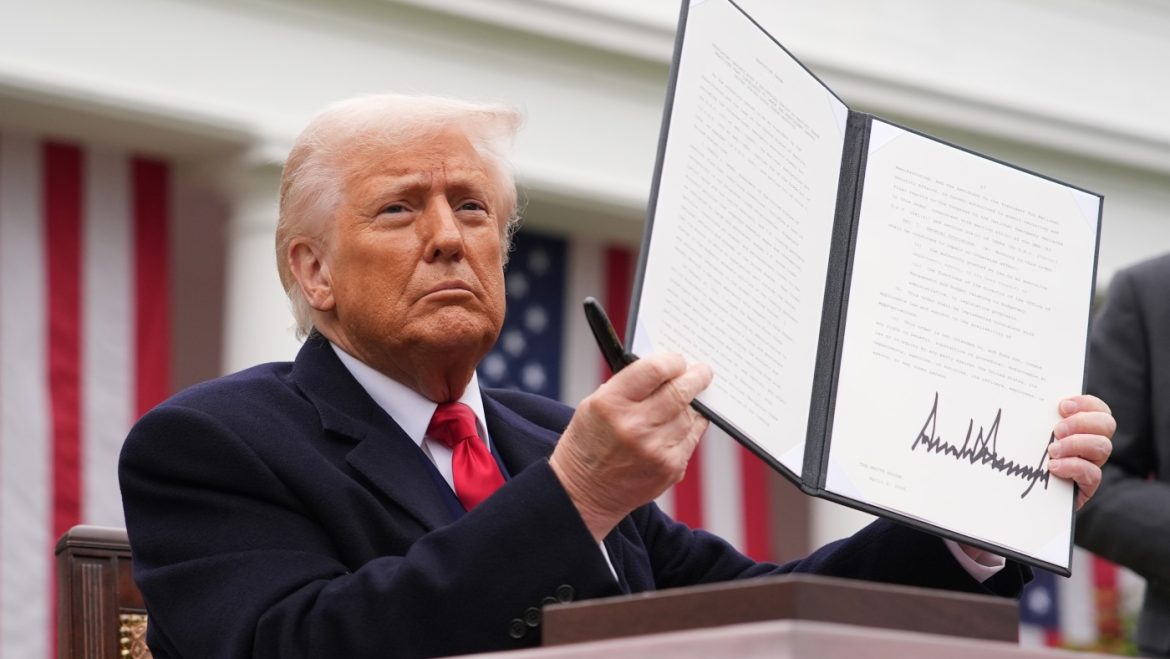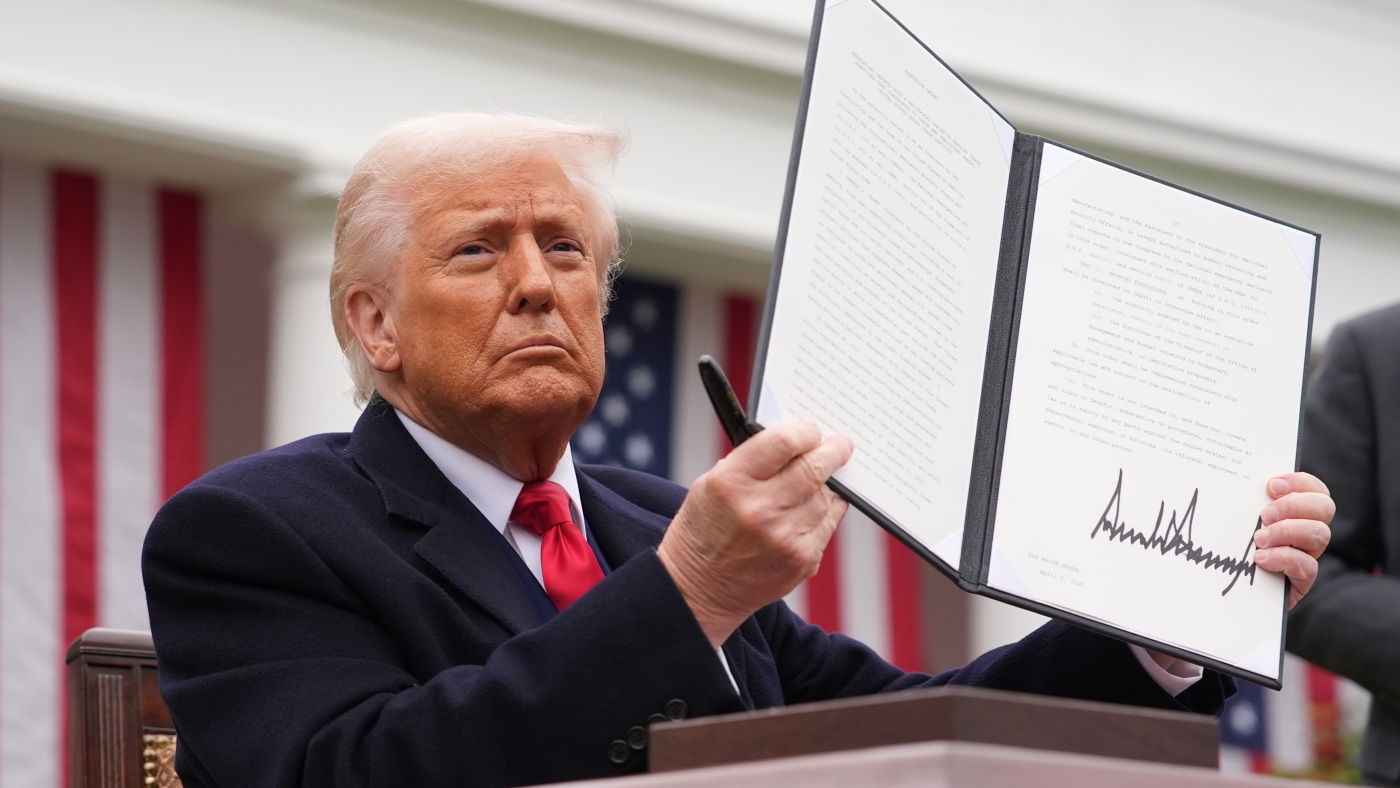A Restriction on Executive Power: The Federal Court’s Stance on Trump’s Tariff Authority
In a significant legal rebuke to the scope of executive power, the U.S. Court of International Trade recently delivered a decisive judgment blocking a majority of President Trump’s tariffs imposed during his term, particularly those enacted under emergency economic powers. This ruling represents a critical challenge to the unilateral tariff impositions that have shaped recent U.S. trade policy and has broader implications for the balance between presidential authority and congressional statutes.
Clarifying the Court’s Rationale: Overstepping Legal Authority
At the heart of the court’s decision lies the legal interpretation that the president exceeded his statutory authority by imposing sweeping tariffs without adequate congressional sanction. The challenged tariffs included the “reciprocal” tariffs introduced on April 2, which placed a 10% baseline tariff on most global trading partners, and steeper levies on countries with which the U.S. runs trade deficits—including major partners such as Canada, Mexico, the European Union, China, and others.
The court, comprising a three-judge panel, underscored that while it did not weigh the tariffs’ economic efficacy or strategic wisdom, it found the invocation of emergency powers insufficient to justify tariffs that do not directly “deal with” the cited emergency. This distinction is crucial: the judges discerned that the International Emergency Economic Powers Act (IEEPA), cited by the administration, does not grant broad powers to impose tariffs as a tool for economic leverage without a direct link to national emergencies. They ruled that the tariff actions were “impermissible” because they extended beyond the scope of the statute.
Implications for Trade Policy and Executive Limits
This ruling strikes at a central feature of the Trump administration’s trade policy—an aggressive use of tariffs as a negotiation instrument and industrial protection strategy. The president’s approach involved deploying both blanket tariffs and targeted “reciprocal” tariffs to protect domestic manufacturing jobs and address trade imbalances. However, the court’s injunction halts these tariffs, effectively invalidating the president’s strategy to reshape trade relations unilaterally.
From a legal and constitutional perspective, this decision enforces the principle that significant economic policy shifts and trade restrictions require appropriate legislative backing. It acts as a reminder that emergency powers are not a carte blanche to overhaul trade policy but are constrained to addressing genuine emergencies with explicit, direct measures.
Breakdown of Tariffs Affected and Legal Arguments
– “Reciprocal” Tariffs: Imposed on dozens of countries, these levies aimed to penalize nations with persistent trade surpluses against the U.S. by setting tariffs up to 50%, along with a 10% baseline tariff on many others. The court viewed this policy as a sweeping unilateral economic measure without proper authority.
– Emergency Powers Invocation: The administration justified its tariffs citing national emergencies, such as drug trade concerns and economic leverage. Judges found these justifications legally insufficient because tariffs must directly “deal with” the emergency—something the court found was not the case here.
– Unlawful Economic Impact: Critics, including small business advocates and economic analysts, argued that the tariffs were destructive—raising consumer costs and disrupting supply chains—without clear economic or legal justification, pointing to the ruling as a safeguard against such unilateral economic harm.
The Broader Political and Economic Context
The court’s ruling arrives amidst ongoing tensions in U.S. trade diplomacy and domestic economic concerns. The administration’s tariffs had aimed to trigger renegotiations of trade terms and fix perceived imbalances but attracted widespread criticism both domestically and internationally. The judicial check reasserts congressional primacy over trade authorization, underscoring the complex interplay of law, economics, and international relations in tariff policy.
Concurrently, the news cycle includes discussions about political inspirations and influences, including the comparative inspiration American conservatives take from leaders like Hungary’s Viktor Orbán, known for his unapologetic and confrontational political style concerning immigration and cultural issues. While separate from trade issues, these political dynamics reflect the broader spectrum of ideological currents shaping current American conservatism and policy approaches.
Conclusion: Recalibrating Authority and Trade Policy Moving Forward
This federal court decision serves as a potent reminder that executive power—particularly in the realm of economic policy and international trade—is subject to legal limits and oversight. It tempers the capacity of any U.S. president to impose sweeping tariffs under broad emergency claims without clear statutory authorization and direct relation to cited emergencies. For future administrations and policymakers, this sets a precedent underscoring the necessity for measured, statutory-backed trade policy that balances national interests with legal frameworks.
As the U.S. recalibrates its approach to tariffs post-ruling, the emphasis will likely return to legislative engagement and negotiation with trade partners within established legal confines rather than unilateral executive action. This represents not only a legal victory for the trade court but also a pivotal moment in the ongoing dialogue about the scope and limits of presidential authority within U.S. economic governance.


